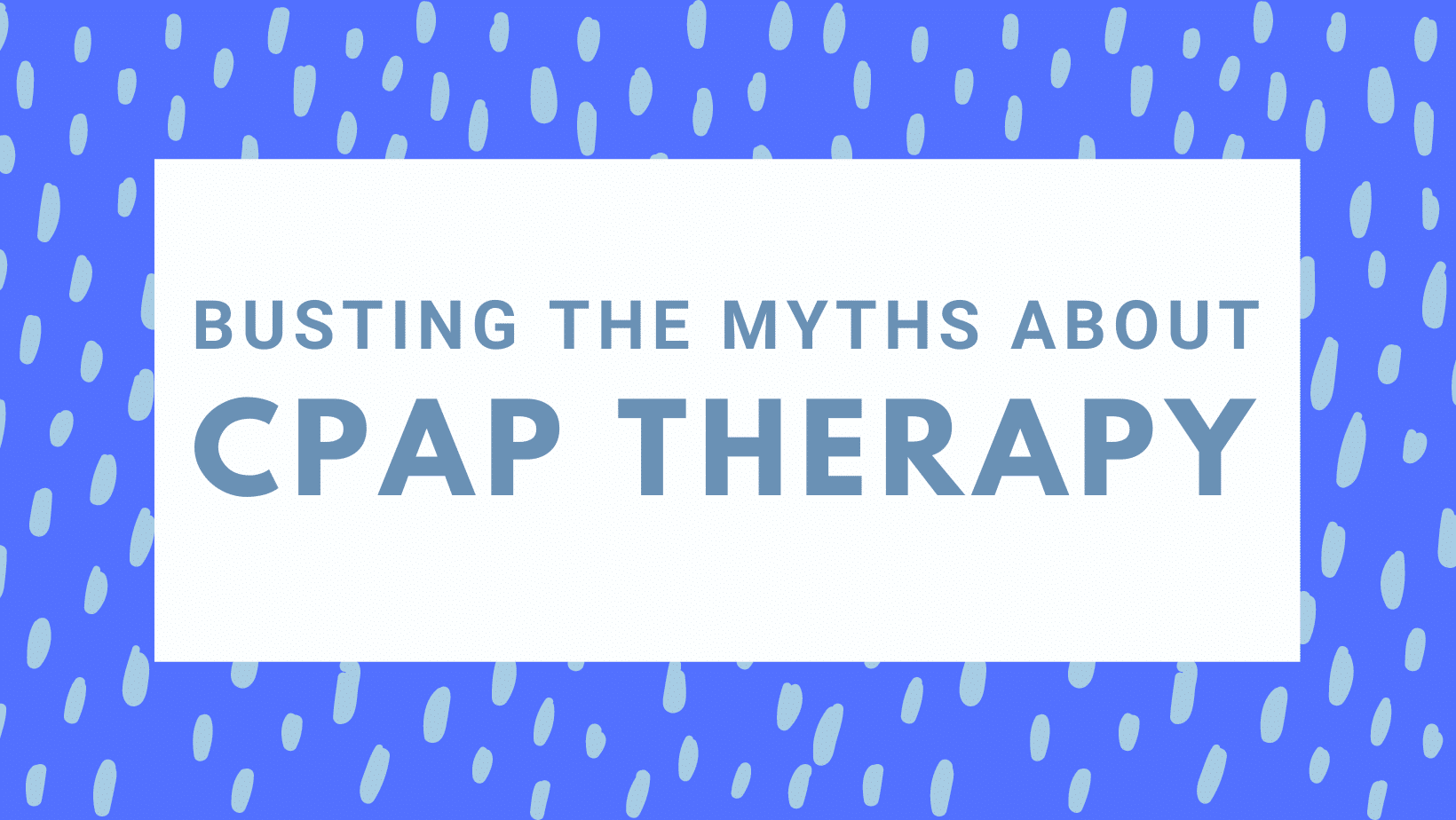
Preconceived notions about CPAP therapy can be the reason some people diagnosed with Obstructive Sleep Apnea (OSA) do not continue with long term therapy. Learn more about common hesitancies and start feeling confident about CPAP therapy!
1) Myth: CPAP machines are bulky and loud.
The first CPAP machine created in the 1980s was a beast! That said, so were computers, cell phones, and TVs. Since then, CPAP machines have evolved to sleek, compact devices that easily fit on a bed-side table. Furthermore, these machines are now jam-packed with cutting edge technology. Most feature automatic pressure adjustments, blue-tooth capabilities for your clinician to monitor your therapy, and apps to observe your own sleeping performance.
When running properly, CPAP machines should hardly make any noise at all.
Reality:
- Modern CPAP machines with humidifiers are generally around 2.75lbs
- Most machines emit a sound level around 26 dba
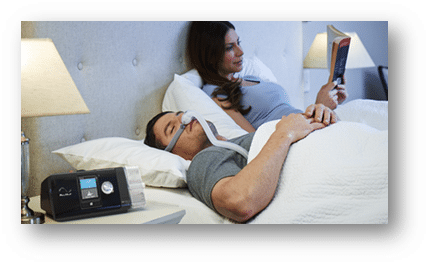
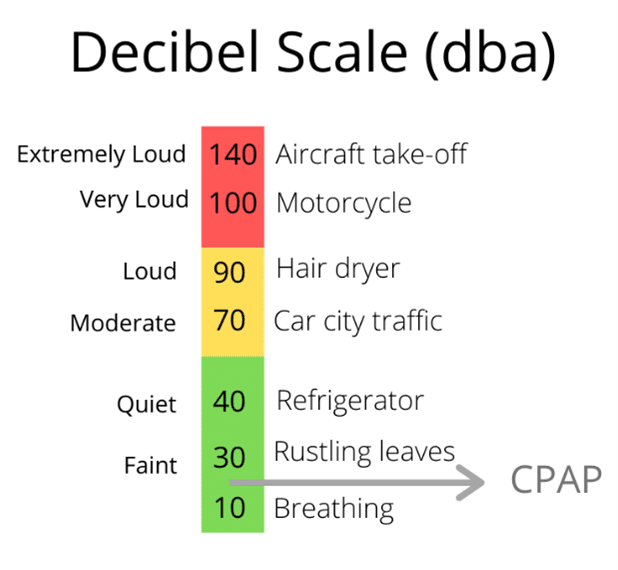
2) Myth: CPAP masks are awkward and leak.
CPAP masks get a bad rep, often getting compared to Darth Vader or snorkel gear. This could not be further from the truth. There is a huge variety of CPAP masks that offer minimal design and thoughtful features that ensure maximum comfort:
- Nasal Mask (minimal facial contact)
- Hose attachment on top of head (allows for better movement while sleeping)
- Straps designed for ease of putting on/taking-off
- Line of sight (unencumbered vision for reading, wearing glasses)
- Strap material for those with hair concerns (to prevent pulling)
The most important aspect to selecting a mask is getting fit by a professional clinician. Take the guess work out of the mask selection process and rely on the expertise of mask sizing science and clinical experience.
CPAP mask seals should not leak excessively. If it does, there are several reasons why:
- Mask seal does not fit properly.
- Seal is no longer effective (needs replacement).
- Headgear is not adjusted properly.
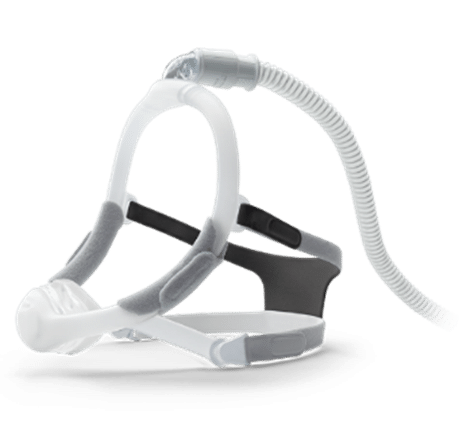
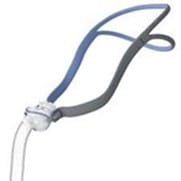
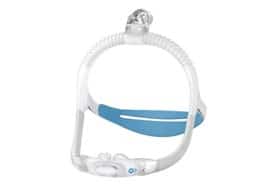
3) Myth: It’s difficult to travel with CPAP.
Whether you’re camping off-grid or taking a flight, it’s never been easier to bring along your CPAP! You can take your regular home machine with you or opt for a travel size CPAP. If you won’t be near a power source, external batteries are available.
If going on a flight, your CPAP machine and equipment are considered a medical device and do not count as additional baggage. It is always a good idea to take your prescription along in case you are asked for documentation.
As an additional peace of mind, most CPAP machines now have blue-tooth technology that allows your clinician to adjust settings anywhere within cell phone coverage!
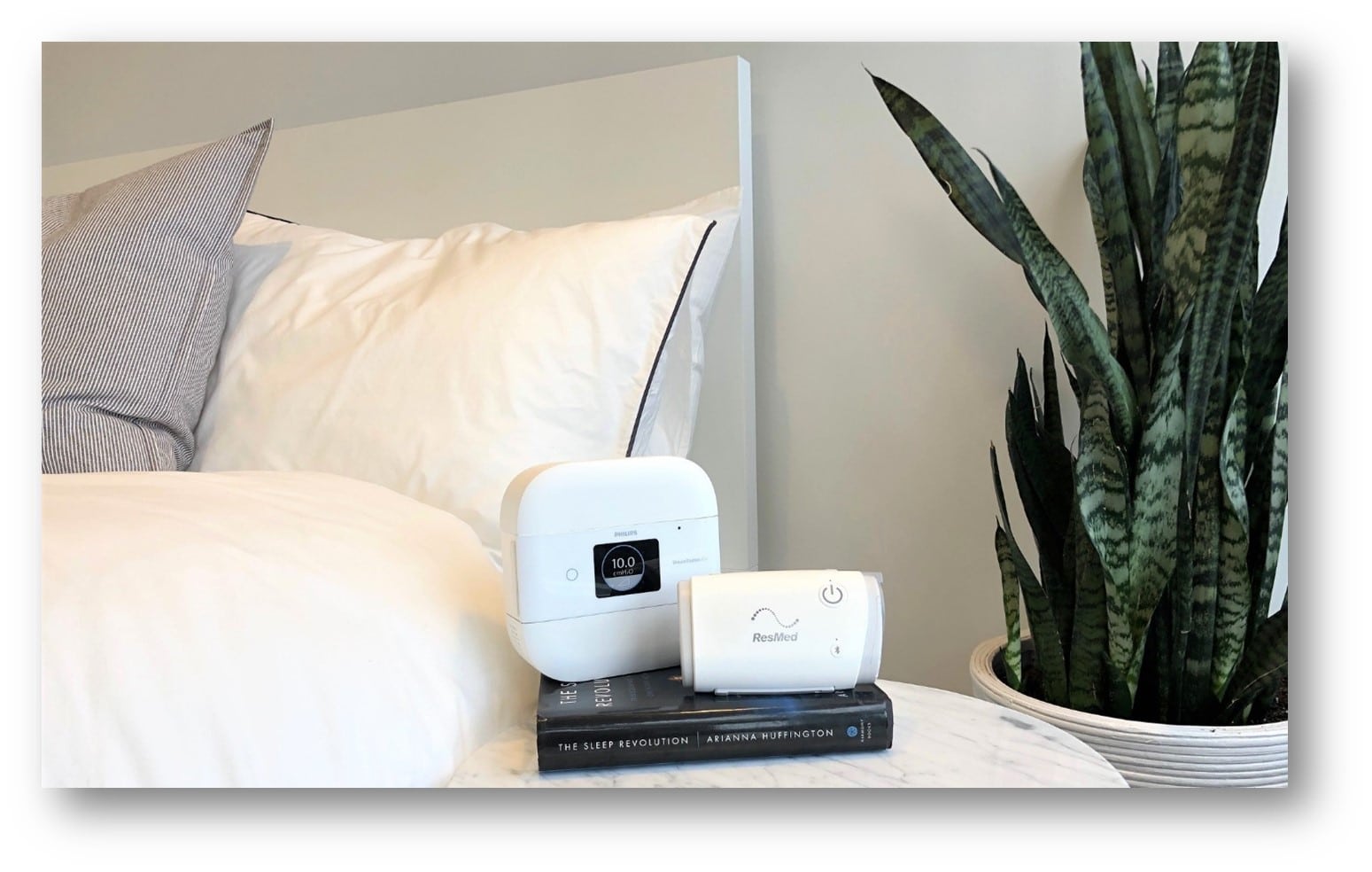
4) Myth: Distilled water is not necessary in the CPAP humidifier.
Wrong!
For your safety and for the protection of your equipment, only use distilled water. Boiling water will kill microbes, but it will not remove minerals or chemical contaminants. These minerals that make water “hard” include calcium, magnesium, iron, and others. If these minerals are present in the humidifier’s water chamber, over time scale will develop that discolors the container and could damage the machine. Filtered water may remove some of the minerals but may not remove living organisms or other chemicals.
5) Myth: CPAP masks are irritating to the skin.
Sometimes people attribute skin irritation to the silicone in CPAP masks. Although this may seem logical at first, CPAP masks are made from medical grade silicone and only in very rare instances attribute to skin irritation.
In fact, the most common cause of skin irritation is not the mask itself, but bacteria that is present on the mask. The silicone in the CPAP mask cushion gradually wears out from skin oils, creating microscopic pockets in the surface of the cushion that bacteria can thrive in. Regularly washing the mask and having a clean face before wearing the mask will reduce irritation. Its also recommended to replace a mask after 6 – 12 months of wear because the silicone loses its ability to be cleaned.
Another factor that can cause irritation may be improper fit. Overtightening of the headgear can cause pressure points which lead to red marks and possible skin break down. For this reason, its best to talk to a clinician about your CPAP mask challenges and they can help find a solution.
6) Myth: Cleaning the CPAP is difficult.
Cleaning a CPAP is as simple as cleaning dishes – don’t overthink it!
- Add some mild detergent to warm water.
- Disassemble water chamber, hose, and mask.
- Soak and then gently hand wash all equipment.
- Rinse thoroughly and let air dry.
7) Myth: Oral appliances are a good alternative to CPAP therapy.
Things to consider when comparing CPAP therapy to oral appliances:
-
There is a misconception that dental appliances cost less than CPAP therapy. In general, dental appliances to treat mild forms of sleep apnea are around $2,000, which is also roughly the cost of a CPAP package.
-
Use of a dental oral appliance is not recommended for moderate to severe Obstructive Sleep Apnea.
-
Oral appliances work by pulling the jaw forward; some individuals may find this uncomfortable and painful.
-
CPAP therapy is the gold standard to treat Obstructive Sleep Apnea.
Final Thoughts
Keep an open mind to treating Obstructive Sleep Apnea with CPAP therapy. At Aveiro Sleep, we welcome the opportunity to answer any questions or address your concerns. Our focus is ensuring you feel confident and comfortable with CPAP therapy, and ultimately help you achieve a better sleep!
Don’t know if you have Obstructive Sleep Apnea? Loud snoring, gasping for air during sleep, and daytime fatigue are just some of the symptoms of OSA. Talk to your physician about being referred to Aveiro Sleep for a Home Sleep Apnea Test in the comfort of your own bed. It’s free!
Aveiro Sleep provides Home Sleep Apnea Testing, CPAP therapy and support services catered to obstructive sleep apnea. Our local clinics allow us to test, treat, and support thousands of Albertans close to their homes.
Call now to speak to a Patient Success Coordinator 1-855-852-2989 or contact us through our online form.
